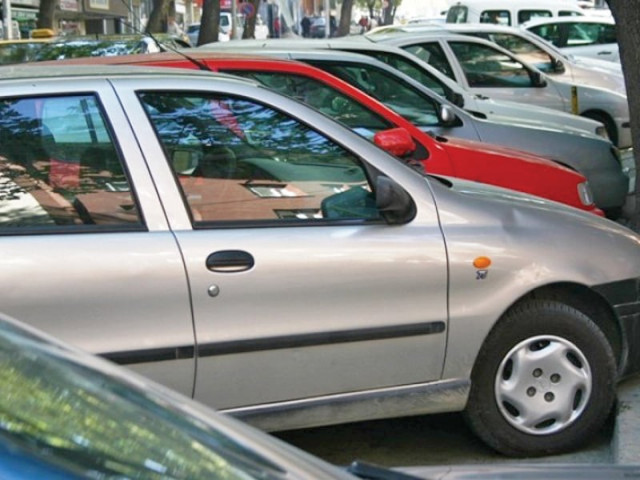The Department of Accerse and the Taxation of Islamabad introduces new reforms to simplify the registration of vehicles, the transfer of ownership and the tax payment processes.
These measures include personalized license plates, registration cards for digital vehicles and an improved mobile application for online tax payments – all designed to make procedures more efficient and accessible.
In an exclusive interview with App on Sunday, the Director of Accerse and the Tax Department Islamabad, Bilal Azam, said that the ministry focuses on improving vehicle services, including registration, property transfers, tokest tax payments and post-registration tasks.
Azam said that the objective was to facilitate citizens as much as possible, whether at their door or via online platforms. Thanks to digital services such as the Islamabad Citizen application, people can easily pay their token tax at home, reducing the need to visit offices. He added that digital change has improved both tax recovery and services.
Regarding the personalized license plates system, Azam said the department was preparing to launch a new system, the first of its kind in Pakistan. As part of the system, the registration numbers will be linked to the owner of the vehicle rather than the vehicle. When a car is sold, the license plate will be returned to the previous owner and the new buyer will receive a fresh plate linked to his identity.
He explained that this step will guarantee that no vehicle remains unregistered after a sale. Once the biometric verification is completed for the transfer, the previous plate becomes vacant and is reassigned to the seller, while the buyer receives a new personalized number. The initiative should help the police in vehicle monitoring, ownership of property, access to data and the application of E-Challan.
Azam also said that vehicle registration cards, currently published in the form of physical smart cards, will soon be digitized. The digital version will be accessible via the user’s PAK-ID account, similar to the national digital identity cards published by Nadra.
When a vehicle is sold, the seller will submit an online request via the application. The ministry strives to allow biometric verification via mobile devices, eliminating the need for visits in person. Once the transfer is processed, the buyer’s digital registration card will automatically appear in his Pak-ID profile.
Azam urged citizens to pay for his tokens in July to benefit from government discounts. He noted that many vehicles from the 80s and 1990s lacked tax files or transactions for decades. Despite public opinions and advertisements, the non -respondent owners had their registrations canceled.
For vehicles without transaction since the 1990s or 2000s, a new policy has been developed to identify and manage these cases. If the token tax has not been paid two to three years, a penalty of 50% is imposed; For longer periods, a 100% penalty is billed. These penalties aim to encourage payment in time.
In addition, a 10% discount is offered for token tax payments made in July to further encourage compliance.
Azam stressed that the ministry had previously launched the “City Islamabad” application, simplifying services, including tokens tax payments. The application, available on Android and iPhone, allows users to register, enter their vehicle number and generate a PSID (payment sliding ID). The system automatically calculates applicable costs and differentiates between spinning and non-Placerated citizens. Payments can be made via any online banking system linked to the PSID.
He highlighted the importance of digital platforms, especially than about 1.42 million vehicles are recorded with the department. The management of these volumes manually would be ineffective and would lead to congestion in the excise offices. Digitization has considerably reduced this burden by allowing remote transactions.
Another major reform is the passage of material flea cards to fully digital vehicle cards, which should start soon. These will be integrated into Pak-Id de Nadra, allowing vehicle owners to download their recording cards directly.
In addition, the ministry strives to implement a mobile biometric verification for property transfers, allowing sellers and buyers to complete transactions entirely from mobile devices.
Azam has advised citizens to regularly pay their token taxes and avoid delays, because the ministry now actively identifies inactive vehicles and impose penalties. The cancellation of registrations for long -term vehicles is part of a wider effort to maintain specific records and guarantee responsibility.
The ministry reforms aim to ensure that each vehicle in the capital is recorded, taxed and documented. This should improve tax perception and support government security agencies in the tracing of vehicles if necessary.
By concluding the interview, Azam said that personalized license plates, digital vehicle cards and online tax payment systems should transform vehicle -related services in the capital. Citizens can expect faster, more transparent and practical services, reducing dependence on obsolete manual procedures.




